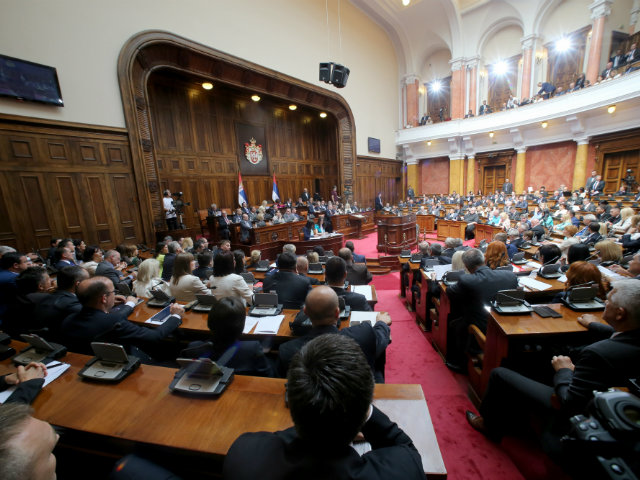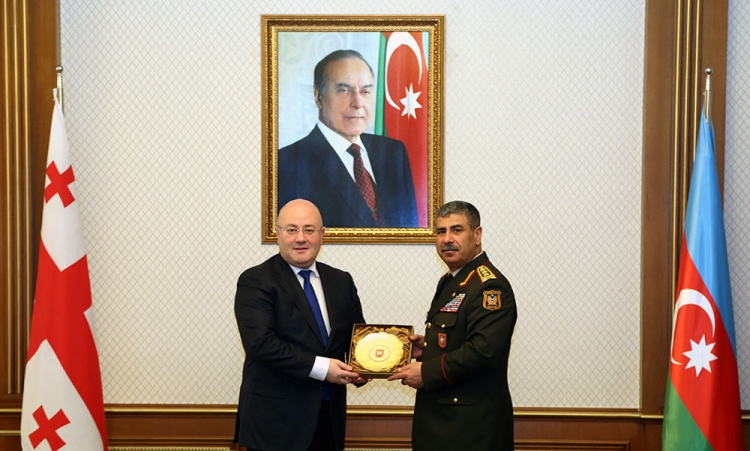Download PDF :


Balkan Insight (12 March 2018)
An agreement between Serbia’s Interior Ministry and the Russian Security Service, which awaits adoption in the Serbian parliament, worries some MPs and experts, who fear its vagueness could cause problems.
Although the focus of the document is on cooperation between the two countries on “protected persons” – people under police protection – and facilities, other parts of the agreement detailing cooperation on “neutralization of computer attacks on state resources”, or “in the field of internal security”, cause concern.
The agreement that Serbian MPs need to approve has been signed already by the Serbian Interior Ministry and Russian Federal Security Service.
Although the document states that it was signed on May 23, 2017, the content only became public after it was listed more recently in material for the parliamentary session.
Opposition Nova Stranka MP and former Prime Minister, Zoran Zivkovic criticized the document and told the media on Thursday that it “threatens the sovereignty of Serbia in the field of security”.
Defending the agreement, Interior Minister Nebojsa Stefanovic on Thursday responded that it would “contribute to the closer and better cooperation between [Serbian and Russian] institutions, and does not jeopardize the security of Serbia”.
A report in the daily newspaper Blic said Stefanovic had explained that the focus of cooperation with the Russian Security Service, which is the part of the Russian Interior Ministry, would be on cooperation with “top security experts, protection of protected persons and facilities, exchange of information in that area, joint training, use of materials, technical and means of transport, equipment, weapons and means of communication during the performance of security and safety duties”.
Andrej Petrovski from the Share Foundation, an NGO dedicated to protecting the rights on Internet, told BIRN that Serbia, “like most Western Balkan countries, struggles with the rule of law, especially when it comes to enforcing new laws and documents that are legally binding”.
Petrovski said the line in the agreement that involves “joint activities for neutralization of computer attacks on state information resources of vital importance” was problematic.
“In a highly polarized world, and with evidence that Russian structures have taken part in many cyber/political processes in various Western countries with strong democratic foundations, it might seem hard to justify an agreement of this sort,” he added.
To safeguard the sovereignty of Serbia, the government should instead focus more on building strong, transparent and credible institutions that have the best interests of the country as their priority, he added.
“Maybe in those circumstances, such an agreement would make sense,” he conceded.
Some months before the agreement was signed, Nikolai Patrushev, head of the Russian Security Council, called for Russian and Serbian security agencies to cooperate more closely.
Meeting Serbia’s Interior Minister, Nebojsa Stefanovic, in Belgrade, Patrushev offered a memorandum of understanding with the Serbian Interior Ministry, announcing it should be signed in 2017.
The meeting took place on October 26, 2016, only days after Moscow was accused of playing a major role in political and security disputes in the region.
Sasa Djordjevic, from the Centre for Security Policy, an NGO in Belgrade, told BIRN that it was unusual for the Interior Ministry to sign an international binding contract. He added that, until now, the government had always signed such agreements.
“It is not clear … why it was decided to sign a binding international treaty for a specific area, such as the security of protected persons and facilities, which are mainly regulated by technical documents,” he said.
He noted also that during his visit to Serbia, Patrushev had announced the signing of a “non-binding memorandum of cooperation, not an international binding contract”.
Djordjevic also said that some parts of the agreement suggest that cooperation was being established for a “much wider framework, not only for the protection of protected persons”.
He added: “Cooperation in the field of internal security is too broadly defined, and can practically involve all areas of cooperation envisaged by the agreement, and more, which can lead to practical problems in cooperation – or else the goal of the agreement is something completely different.”
Djordjevic said it would be much better for the agreement to be “unambiguously related to cooperation in the conduct of security work for protected persons and facilities”.
http://www.balkaninsight.com/en/article/serbia-russia-security-agreement-worries-experts-03-09-2018

 AZERBAIJAN, GEORGIA INK MILITARY CO-OP PLAN FOR 2018
The Caucasus and Turkish-Armenian Relations
12.03.2018
AZERBAIJAN, GEORGIA INK MILITARY CO-OP PLAN FOR 2018
The Caucasus and Turkish-Armenian Relations
12.03.2018




























